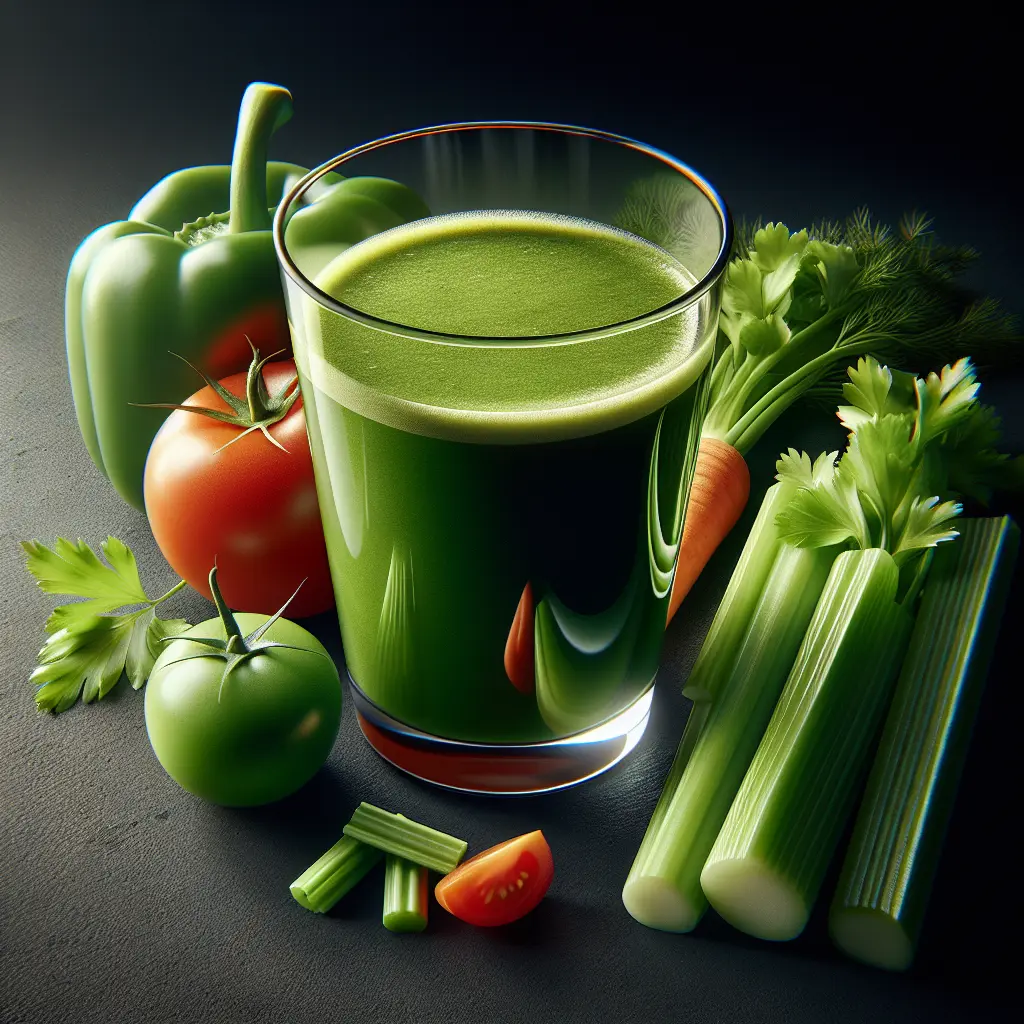Discover the Nutritional Abundance of Vegetable Juice
Vegetable juice is an exceptional source of vitamins, minerals, and antioxidants, providing a wealth of health-promoting benefits. Here's a closer look at its nutritional composition:
- Vitamins: Vegetable juice is brimming with a variety of vitamins, including vitamin A, vitamin C, vitamin K, and B vitamins. These vitamins are crucial for maintaining healthy eyesight, immune function, bone health, and energy production.
- Minerals: Vegetable juice is a rich source of minerals such as potassium, magnesium, iron, and calcium. These minerals contribute to regulating blood pressure, nerve function, red blood cell production, and bone strength.
- Antioxidants: Vegetable juice is packed with antioxidants, including carotenoids and flavonoids. These compounds help neutralize free radicals, protecting cells from damage and reducing the risk of chronic diseases.
Unveiling the Health Benefits of Vegetable Juice
Incorporating vegetable juice into your diet can bring about a multitude of health benefits, including:
- Improved Heart Health: The antioxidants and fiber in vegetable juice can help lower cholesterol levels, reduce inflammation, and improve blood flow, promoting heart health.
- Enhanced Immune System: The vitamin C and other immune-boosting compounds in vegetable juice help strengthen the body's defenses against infections and diseases.
- Healthy Digestion: The fiber in vegetable juice helps regulate digestion, preventing constipation, and promoting a healthy digestive tract.
- Reduced Risk of Chronic Diseases: The antioxidants in vegetable juice can help protect cells from damage, potentially reducing the risk of developing chronic diseases such as cancer, heart disease, and Alzheimer's.
- Improved Hydration: Vegetable juice is a hydrating beverage that can help replenish fluids, especially after exercise or during hot weather.
Tips for Incorporating Vegetable Juice into Your Diet
To reap the benefits of vegetable juice, consider the following tips:
- Choose Fresh Ingredients: Opt for fresh vegetables when making vegetable juice to ensure maximum nutrient content.
- Variety is Key: Use a variety of vegetables to create a well-rounded juice that provides a diverse range of nutrients.
- Start Gradually: Introduce vegetable juice into your diet slowly to allow your body to adjust.
- Experiment with Flavors: Add fruits or herbs to your vegetable juice to enhance its flavor and make it more enjoyable.
- Consider Homemade: Making vegetable juice at home allows you to control the ingredients and ensure freshness.
Integrating vegetable juice into your daily routine is an effective way to boost your nutrient intake and improve your overall health. Embrace the power of this nutritional powerhouse and experience its transformative benefits.
How many calories are in Vegetable Juice?
Each 1 cup of Vegetable Juice contains 56 calories.
Vegetable Juice Nutritional Information
| Nutrient | Amount per 1 cup (253g) |
|---|---|
| Calories | 56 Calories |
| Protein | 2.4g |
| Fat | 0.8g |
| Saturated Fat | 0.2g |
| Cholesterol | 0mg |
| Carbohydrates | 9.8g |
| Dietary Fiber | 1.3g |
| Sugar | 7.2g |
| Sodium | 0.428mg |
| Potassium | 0.4681mg |
| Calcium | 0.035mg |
| Iron | 0.0007mg |
